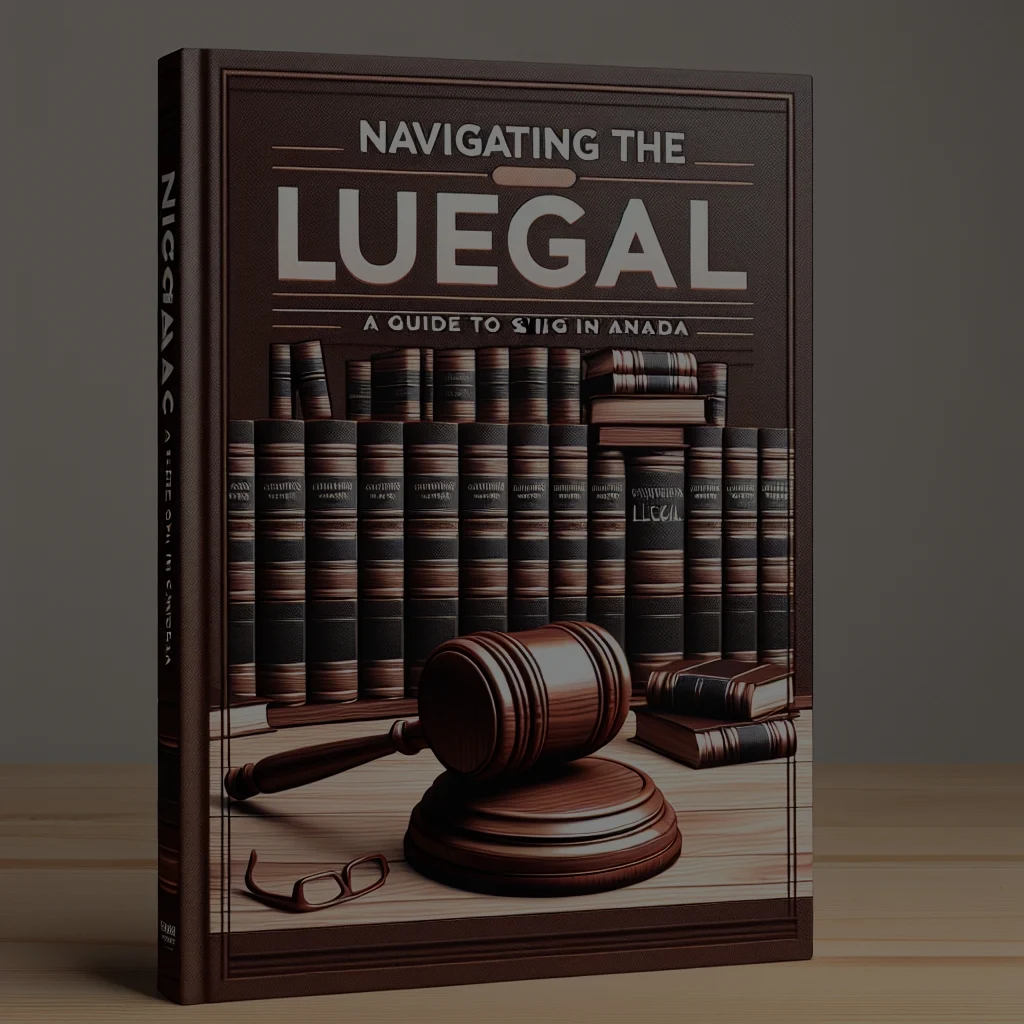Navigating the legal system can be a daunting experience, especially for those unfamiliar with its complexities. In Canada, the process of suing involves various legal frameworks, procedures, and terminology that can seem overwhelming to the uninitiated. This guide aims to demystify the process of suing in Canada, providing a comprehensive overview of the legal landscape, essential steps for case preparation, common legal terms, and tips for finding appropriate legal representation. Whether you are considering a lawsuit or simply want to understand the Canadian legal system better, this article provides valuable insights.
Understanding the Canadian Legal Framework for Suing
The Canadian legal system is grounded in common law principles, which means that court decisions play a significant role in shaping the law. Each province and territory in Canada has its own court system, usually comprising a small claims court, a superior court, and an appellate court. Small claims courts are designed for simpler cases, often involving lower financial stakes, while superior courts handle more complex matters and larger claims. Understanding which court is appropriate for your lawsuit is crucial in determining the path forward.
In addition to the court hierarchy, the Canadian legal framework is influenced by federal and provincial laws, as well as the Constitution. This multi-layered system means that the grounds for a lawsuit may vary depending on the jurisdiction. It is essential to familiarize yourself with both the federal statutes and the specific provincial regulations that may apply to your case. Legal advice can be invaluable in navigating these intricacies, as an attorney can help determine the relevant laws and guide you through the process.
Another important aspect of the legal framework is the limitation periods that dictate the time frame within which a lawsuit must be initiated. Each province has its own rules regarding how long a plaintiff has to file a claim, often ranging from two to six years, depending on the type of case. Failing to initiate a lawsuit within this time frame can result in the case being dismissed, making it critical for potential plaintiffs to act promptly and seek legal counsel as soon as possible.
Key Steps to Prepare Your Case for Court Success
Preparing your case for court requires careful planning and organization. The first step is to clearly define the basis of your claim, which may include contract disputes, personal injury, or defamation. Collecting evidence to support your claim is essential; this includes documents, photographs, medical records, and witness statements. The more detailed and organized your evidence, the stronger your case will be. It’s also important to document your interactions related to the case, as these records can be pivotal during proceedings.
Once you have gathered evidence, the next step is to draft the necessary legal documents, including the statement of claim, which outlines the facts of your case and the relief sought. This document needs to adhere to specific formatting and procedural rules, which vary by province. Some individuals may opt to represent themselves, known as "pro se" representation, but it is often advisable to work with a lawyer who can help ensure that all legal documents are correctly prepared and filed on time.
After submitting your initial documents, the next stage typically involves the discovery process, where both parties exchange information and evidence. This is a critical phase where you can learn more about the opposing party’s case and bolster your own. Being thorough and honest during discovery is paramount, as any attempts to hide information or misrepresent facts can lead to severe repercussions in court.
Exploring Common Legal Terms and Procedures in Canada
Familiarizing yourself with common legal terms and procedures can significantly enhance your understanding of the litigation process. Terms such as "plaintiff," which refers to the person bringing the lawsuit, and "defendant," the person being sued, are foundational. Additionally, understanding concepts like "burden of proof," which denotes the obligation to prove one’s claims, is essential, as this will dictate your approach to presenting evidence in court.
Another key term is "disclosure," which refers to the process where parties share relevant documents and information before the trial. This stage can be complex and demanding, as it requires both parties to be transparent about the evidence they possess. Failure to comply with disclosure requirements can result in sanctions or the exclusion of evidence during the trial, so understanding this process and adhering to its rules is critical.
Finally, becoming familiar with procedural terms such as "motion," which refers to a request made to the court for a specific ruling or order, is beneficial. Motions can be filed at various stages of litigation and can address issues such as dismissing a case or compelling the other party to provide evidence. Knowing how to navigate these motions can significantly affect the outcome of your case and the overall efficiency of the legal process.
Tips for Finding Legal Representation and Resources
Finding the right legal representation is a crucial step in the suing process. Start by identifying potential lawyers or law firms that specialize in the area of law relevant to your case, such as personal injury, family law, or contract disputes. Online legal directories and bar association websites can provide listings of qualified attorneys in your province. When considering representation, look for reviews, testimonials, and credentials to gauge the lawyer’s reputation and experience.
It is often helpful to schedule initial consultations with multiple lawyers to discuss your case and evaluate their approach. During these consultations, ask about their experience with similar cases, their fee structures, and their communication style. Many lawyers offer free initial consultations, allowing you to explore your options without financial commitment. Pay attention to how comfortable you feel discussing your case with them, as a strong attorney-client relationship can greatly influence the success of your case.
In addition to personal referrals and online resources, consider legal aid services if you are facing financial constraints. Various organizations across Canada provide free or low-cost legal assistance to eligible individuals. These resources can help you navigate the complexities of the legal system, ensuring that you receive the support you need to pursue your case effectively.
Suing in Canada involves a multifaceted legal framework, requiring a clear understanding of the relevant laws, procedures, and terminology. By taking the time to prepare your case thoroughly and finding the right legal representation, you can navigate the complexities of the legal system more effectively. While the journey can be challenging, being informed and proactive will empower you as you seek justice and resolution for your legal matters. Whether you are embarking on this journey alone or with the help of a legal professional, knowledge is your best ally in achieving a favorable outcome.
Navigating the Appeal Process: A Guide for Canadian CourtsUnderstanding Impaired Driving Penalties Across CanadaUnderstanding Your Rights When Arrested in CanadaRelevant LinkRelevant LinkRelevant LinkNavigating the Appeal Process: A Guide for Canadian CourtsUnderstanding Impaired Driving Penalties Across CanadaUnderstanding Your Rights When Arrested in CanadaRelevant LinkRelevant LinkRelevant Link



